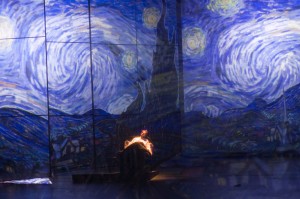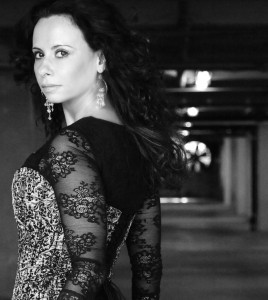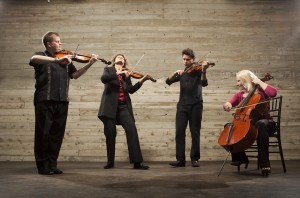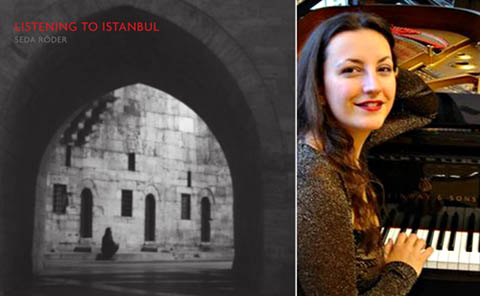Life is about conflict, and so is opera. And what could be a more dramatic subject than the French Revolution when keeping your head wasn’t an abstract issue, but a life and death one. Francis Poulenc‘s 3-act grand opera Dialogues des Carmelites (1953-56) was acclaimed as a masterpiece at its 1957 La Scala premiere, and it’s easy to see why. It gets at the heart and soul of its subject through the person of a high strung girl from a rich family, Blanche de la Force, who decides to become a Carmelite nun to escape life, and her internal revolution – or enlightenment–from not knowing who she is or what she wants, to full knowledge and decisive action–is a perfect match for the external one. The inevitable is set in motion.
Why inevitable? Because from the first note to the last the forces of history drive the piece forward and, in Poulenc’s very Catholic view, God has preordained the outcome. None of this would matter if the music failed to make Georges Bernanos’ fine book and its characters come alive, and come alive they do, in an extremely varied yet conversational style not unlike that of the Debussy of Pelleas (1893-95, 1901-02). Dialogues is also the biggest installment in Poulenc’s series of sacred works, from the chorus only Litanies a La Vierge Noire (1936), to the chorus with large orchestra Stabat Mater (1950), and Gloria (1959), which an expert cast delivered here with power and point.
The role of Blanche, whose mood swings are all over the place–one moment she’s impulsive, the next calm, scared to death, childlike, sincere–can’t be easy, but soprano Sarah Meltzer, in one of several roles not doubled here, made these aspects fuse, her delivery solid, varied, her technique secure. The role of her best friend Sister Constance who’s cheerful, but not shallow, was superbly sung by light soprano/ soubrette Elise Kennedy, her clear as a bell tone, diminutive stature and strong stage presence a welcome contrast to Meltzer’s, and the rest of the cast in this great but largely dark piece. (more…)





 S21 Q + A w/ ETHEL:
S21 Q + A w/ ETHEL:

 Steve Reich turns 75 this coming October, and the celebrations have already begun. Later this month is a concert at Carnegie Hall on April 30th. It features the Kronos Quartet in a new piece commemorating a more sombre anniversary: WTC 9/11.
Steve Reich turns 75 this coming October, and the celebrations have already begun. Later this month is a concert at Carnegie Hall on April 30th. It features the Kronos Quartet in a new piece commemorating a more sombre anniversary: WTC 9/11.